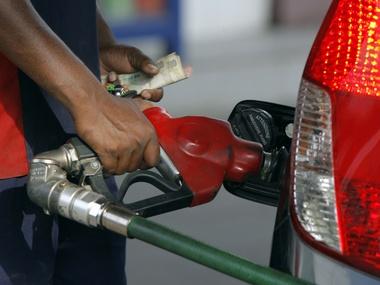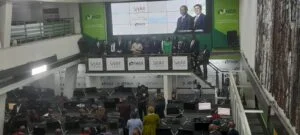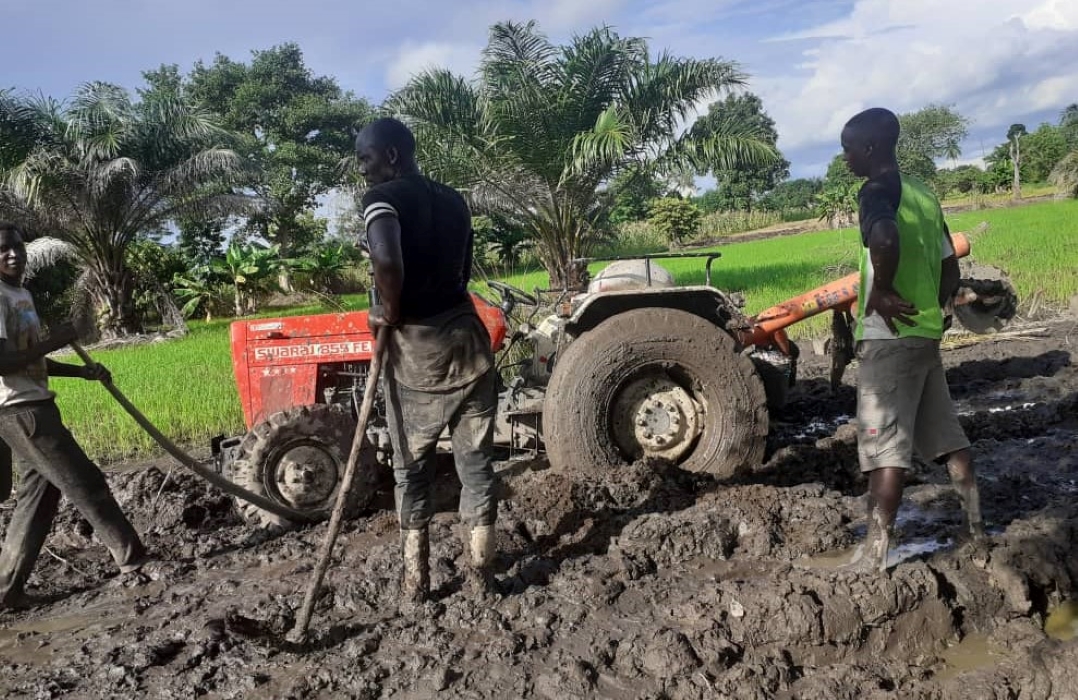Oil & Gas
FG Inaugurates Crude Oil Cost Optimisation Programme

The Federal Government has inaugurated the Nigerian Upstream Cost optimisation Programme (NUCOP) to drive down the cost of crude oil production in the country.
The Minister of State for Petroleum Resources, Chief Timipre Sylva, at the inauguration on Tuesday in Abuja said that cost reduction of crude oil production would help Nigeria remain competitive in the global market.
“NUCOP is aimed at optimising our upstream operation expenses through process enhancement and industry collaboration.
“One of the top priority areas given to the Ministry of Petroleum Resources under the Next Level agenda of Mr President is the reduction of the price crude oil extraction cost.
“At the Ministry of Petroleum Resources retreat held in 2019, we identified some initiatives to tackle the challenging high cost of crude oil extraction in Nigeria,’’ Sylva said
He said that the major cost drivers identified as contributing to high crude oil production in Nigeria when compared with low production cost in other countries such as Iran and Saudi Arabia could be classified under five dimensions.
Sylva said that the five dimensions were capital expenditure items, operational cost, systemic cost factors, cost associated with contracting procedures and policy-related elements.
He explained that further diagnostic elements included lack of proper project definition, weak collaboration and standardisation, capacity and capability issues, security related issues, facility reliability and uptime limitations.
Others are financing and payment delays, single sourcing syndrome, high crude oil handling charges, high magnitude of crude oil loss , over-regulation, bureaucracy and multiplicity of tariffs, excessive expenses and bogus owners project management team cost.
“In line with the commitment of President Muhammadu Buhari’s administration to address these issues, he recently inaugurated the Oil and Gas Excellence Centre in Lagos.
“We have also put in place an industry standing committee to monitor compliance with cost production and tariffs, the committee will design template to collate unit technical and unit development cost of productions by operating companies and identify cost-efficient operators.
“They will institute a monitoring system with the Ministry of Petroleum Resource to track cost trends and track cost benchmark between Nigeria and other producing countries especially, those with production cost profile,’’ he said
Sylva added that the committee would design protocols for interface with operating companies to monitor their compliance to cost production directives.
He noted that the creation of industry cost efficiency aimed at unlocking cost optimisation opportunities and supplying efficiency for inventory management, logistics, security, among others.
He noted that complying with all these efforts would help to drive low cost of production in the country.
Sylva said that the average cost of a barrel of crude oil was currently below 30 dollars for the Joint Venture (JV) agreement and below 20 per barrel for the Production Sharing Contract (PSC).
“We need to do a heavy lifting not only to get to the optimal unit of cost but also to sustain it as part of our way of doing business.
“Today’s engagement with industry players is part of this administration’s effort to tackle this challenge, I expect robust discussions and realistic road mark to achieve cost optimisation objectives,’’ he said
In his remarks, the Group Managing Director, the Nigerian National Petroleum Corporation, Malam Mele Kyari, said that the country must cut down the cost of crude oil production for economic growth and development.
Kyari said that with the ongoing energy transition, consumers and investors have various choices to make across the world.
“We cannot produce 50 dollar oil and survive in the global market; you can do that in 2007, 2008 and survive, but today, it is impossible to operate with such cost and be competitive,” he said.
He said that for Nigeria to achieve reduction in cost, there was the need to have adequate security architecture, adding that conducive business environment remained important.
`In order to for us to remain competitive, to deliver our national objective of ensuring growth in our economy, we need to reduce crude oil production cost,’’ he said
Also, the Chief Operating Officer Upstream, Mr Adokiye Tombomieye, said that demand uncertainty and depressing oil price in the industry had called for every measure to ensure crude oil cost reduction.
“In view of the demand uncertainty and depressing prices, OPEC and its oil producing allies agreed on April 12, 2020 to cut production by 9.7million barrels per day, effective May 1, 2020 and taper to 7.7 million barrel per day from July 1 to Dec. 31, 2020 with further reduction to 5.8 million bpd from January 2021 through April 2022.
“The prevailing circumstances occasioned the need for the NNPC to cut down production cost for business continuity as crude oil at below cost, hence the GMD issued a directive for unit operating Cost to be reduced to 10 dollars,’’ he said.
He said that that human resources, logistics, security, direct lifting, operation maintenance and public affairs accounted for 80 per cent and 60 per cent of JV and PSC operating cost.
He noted that a road map for reduction of cost element would champion the nation’s resolve toward achieving an overall reduction of the unit operating cost.
Tombomieye said that there was the need for a wider industry engagement, adding that commitment would avail the NNPC the opportunity to cooperate with its partners in order to unveil NUCOP.
“This is with the sole objective of optimising upstream operation cost through process enhancement and collaboration within the industry.
“The successful implementation of this laudable initiative in 2021 and beyond will further support the `Executive Excellence’ drive to move from words to action,’’ he said (NAN)
Oil & Gas
Why we are Recording Increased Oil Production – Edun

The Federal Government says improved security in the Niger-Delta is responsible for the increased crude oil production to 1.65 million barrels per day as against the 1.25 million bpd previously recorded.
Mr Wale Edun, the Minister of Finance and Coordinating Minister of the Economy, stated this in Abuja at a Podcast hosted by Bruit Costaud in collaboration with Ballard Partners of U.
S.A.Reports says the immediate past Minister of Information and Culture, Alhaji Lai Mohammed is the Managing Partner of Bruit Costard, a lobbyist and public relations firm and an affiliate of Ballard Partners.
According to Edun, the quickest way to get revenue for critical infrastructure is to shore up oil revenue.
“This is quickest way of giving the government the needed revenue to address our urgent needs.
“The government doesn’t have enough revenue for critical infrastructure and social services which are crucial to Nigerians now.
“The prices are still elevated and as you know in June 2023, the oil production and sales were roughly 1.25 million barrels per day.
“Now, it is up to 1.65 million barrels per day, that is one source of bringing in dollars and revenue into the government coffers that is non-inflationary,’’ Edun said.
Edun added that non-oil revenue as well as revenues from taxation were also critical to government.
“If you know about Mr President’s antecedent, the first thing he did in Lagos as governor was to get hold of the revenue.
“What he did was to deploy digitisation. He used the latest technology to block the leakages and to improve the efficiency of monitoring and collection.
This is exactly the same thing we are doing at the federal level now.
“The revenue of the Federal government has been totally revamped.
“There has been application of technology to ensure what is due to the federal government, particularly from its various revenue-earning arms, agencies, companies, and enterprises is not taken,’’ he said.
The minister said that plans were ongoing to give incentives to small, medium and larger businesses. (NAN)
Oil & Gas
Dangote Petroleum Refinery Begins Production of Diesel, Aviation Fuel – Official

Dangote Petroleum Refinery has commenced production of diesel and aviation fuel.
Mr Anthony Chiejina, Group Head, Corporate Communications, Dangote Group, confirmed this in a statement to newsmen in Lagos.
Chiejina quoted the President of Dangote Group, Alhaji Aliko Dangote, to have elatedly thanked President Bola Ahmed Tinubu for his support, encouragement and thoughtful advice towards the actualisation of this project.
Dangote also thanked the Nigerian National Petroleum Company Ltd.
, the Nigerian Upstream Petroleum Regulatory Commission (NUPRC), Nigerian Midstream and Downstream Petroleum Regulatory Authority (NMDPRA) and Nigerians for their support and belief in the historic project.According to him, “We thank President Tinubu for his support and for making our dream come true.
“This production, as witnessed today, would not have been possible without his visionary leadership and prompt attention to details.
“His intervention at various stages cleared all impediments, thereby accelerating the actualisation of the project.
“We also thank the NNPCL, NUPRC and NMDPRA for their support.
“These organisations have been our dependable partners in this historic journey.
“We also thank Nigerians for their belief and support in this project,” he said.
Dangote said: “We have started the production of diesel and aviation fuel, and the products will be in the market before the end of the month.
“This is a big day for Nigeria. We are delighted to have reached this significant milestone.
“This is an important achievement for our country as it demonstrates our ability to develop and deliver large capital projects.
“This is a game changer for our country, and I am very fulfilled with the actualisation of this project.
“The refinery has so far received six million barrels of crude oil at its two SPMs located 25 kilometres from the shore.
“The first crude delivery was done on Dec. 12, 2023, and the 6th cargo was delivered on Jan. 8, 2024,” he added.
He said that the refinery can load 2,900 trucks a day at its truck-loading gantries.
He added that the products from the refinery will conform to Euro V specifications.
Dangote boss said that the refinery design complies with the World Bank, US EPA, European emission norms, and Department of Petroleum Resources (DPR) emission/effluent norms. State-of-the-art technology.
“I must extend our sincere appreciation to our Bankers and financiers, both local and offshore, who demonstrated a great deal of patience, in seeing us through many difficult times.
“In the same vein, we thank the Government of Lagos State, under the leadership of Babajide Sanwo-Olu, who has been incredibly proactive in ensuring that the many challenges we encountered in the course of executing this project were quickly resolved.
“I thank him immensely.
“I also sincerely thank our host communities and their traditional leaders for their sustained patience, forbearance, and admirable willingness to work with us to find amicable and win-win resolutions to the many issues we have had to deal with as the construction of this huge facility progressed.
“Our staff have also contributed so immensely to the success of this project. I thank them profusely,” Dangote added.(NAN)
Oil & Gas
Refinery Rehab: Don’t Expect Immediate PMS Price Crash, Experts Tell Nigerians

Some Oil and Gas Experts have said that the coming on stream of both Port Harcourt and Dangote refineries may lead to some marginal reduction in the cost of petroleum products and not a significant price crash.
The experts made this known in an interview on Sunday in Abuja.
According to them, some ancillary costs such as freight and port charges, among others would have been eliminated to achieve the marginal reduction.
The Federal Government had on Dec.
21, announced the mechanical completion and flare start-up of the Port Hacourt Refining Company Limited (PHRC) and the subsequent streaming of its phase two in 2024.This, according to the Minister of State Petroleum (Oil), Sen.
Heineken Lokpobiri, will herald the commencement of the production of petroleum products after the Christmas break.The PHRC comprised of two refining units, with the old plant having a refining capacity of 60,000 barrels per day (bpd) and the new plant 150,000 bpd, both summing up to 210,000 bpd.
Reacting to the development, an Associate Professor of Energy and Natural Resources, University of Abuja, Olanrewaju Aladeitan, said there should be some marginal reduction in petrol prices as some ancillary cost would have been eliminated.
However, he explained that the price of petroleum products may not come down significantly as to describe it as crashing.
“The price may not come down significantly considering the fact that crude oil and condensates supply for the domestic market under the Petroleum Industry Act is going to be based on a willing supplier and a willing buyer basis.
“And the fact that the supply of crude oil will be commercially negotiated having regard to prevailing international market price for similar grades of crude,” he said.
With this provision, he said there would be no dedicated percentage of crude for local refineries.
“Hence international market price which of course is denominated in dollars will still be the determinant of cost of the crude oil that would be refined.
“So I do not see how the price of Petroleum products will crash,” Aladeitan said.
Also speaking, Mr Yushau Aliyu, an Economic Expert, said reaching to a mechanical test of the refinery after a very long fruitless effort was an indication that part of our refined Premium Motor Spirit (PMS) deficit would be attended.
Aliyu described it as a good signal of recovering in the forex deficit which dominated the dwindling liquidity crisis.
“In addition, the new Nigerian National Petroleum Company Limited (NNPC Ltd.) is responding to the immediate solution for availability of PMS in the economy.
“We are expecting the NNPC Ltd.’s retail stations to reduce their pump price due to absence of landing cost in the short term effects,” he said.
Another oil and gas expert who preferred to remain anonymous said it was obvious that some people in the oil and gas sector were engaged in an act of sabotage.
He frowned at the situation where the government preferred to spend so much, including foreign currency, to import fuel, rather than fix it refineries.
“They claim that the 60,000 barrels capacity refinery in Port Harcourt is back on stream, while the 150,000 barrels capacity will work soon.
“We are waiting to see them work, including that of Warri and Kaduna. When they are put to use, let’s see why fuel prices will not crash,” the expert said.
NAN reports that pump price of PMS has increased to N660 per litre at various fuel stations, while NNPC Ltd.’s retail outlets sell at N617 since the removal of subsidy in May 2023 due to high crude cost and high foreign exchange rate.
The after effect of the removal and high cost of fuel brought untold hardship and suffering on Nigerians due to inflation, increase in goods and services, among others. (NAN)



























